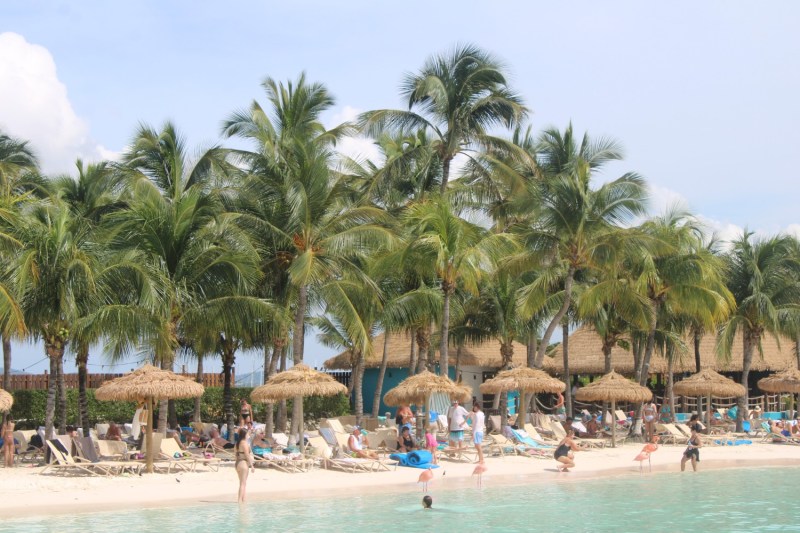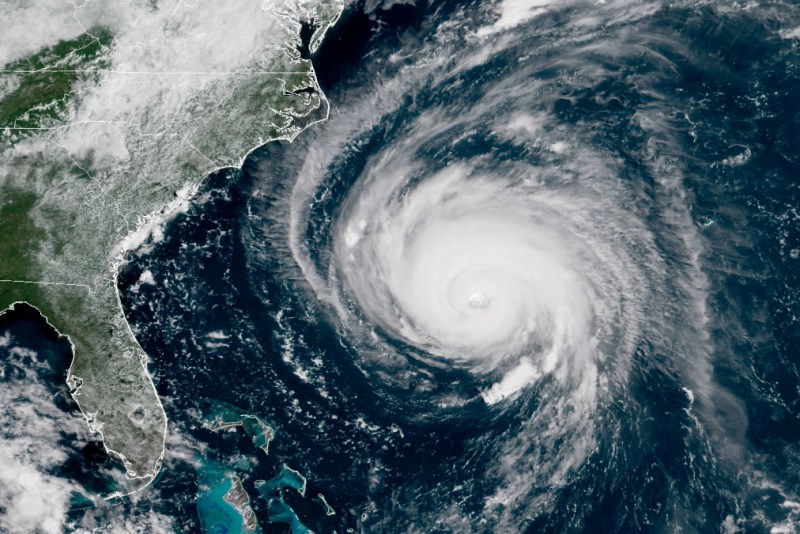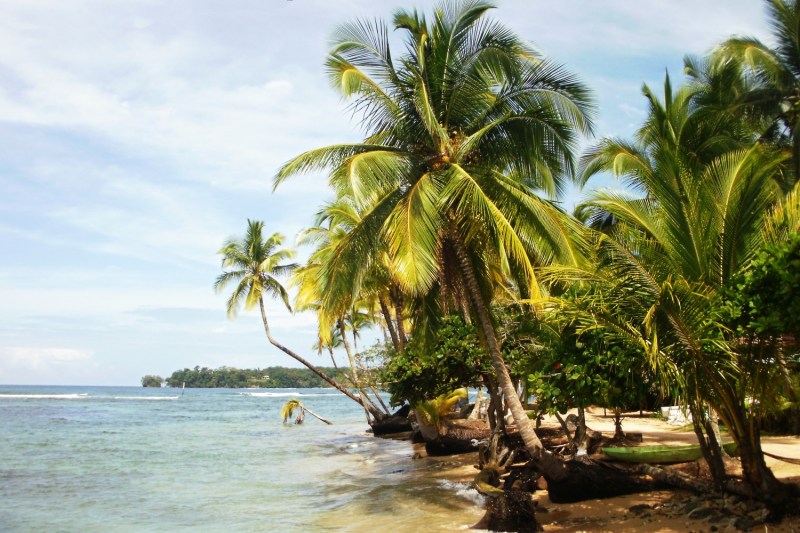
Ah, the Caribbean: The sea and the many islands strewn throughout the sea often seem like the ideal getaway destinations. But when hurricane season hits in the Caribbean, it’s anything but the best time to visit. Not only are these the worst months to visit and the worst months to cruise the Caribbean, but the region has even sometimes experienced direct hits by exceptionally dangerous Category Four and Category Five hurricanes.
So which destinations make for the best Caribbean vacations? Though nowhere is always 100 percent safe during this most tumultuous time of the year, here are a few destinations that are essentially the safest Caribbean islands during hurricane season.

When is hurricane season in the Caribbean, and how do hurricanes form?
So when is hurricane season in the Caribbean? Let’s begin by examining when hurricanes start to form and where hurricanes typically go. According to the National Oceanic and Atmospheric Association (NOAA), the U.S. government’s official meteorological agency, the Atlantic hurricane season begins June 1 and ends November 30 each year, while the Pacific hurricane season begins May 15 and ends November 30.
Where do hurricanes come from? They typically form as thunderstorms off the West African coast, just north of the equator. When the ocean water is warm enough and the air above is humid enough, humid air flows upward at a zone of low pressure over warm ocean water, and water releases from the air to create storm clouds.
As humid air continues to rise, the storm system rotates, and the storm system needs to move farther away from the equator in order to continue rotating and benefitting from the Coriolis effect (or Coriolis force). As cyclonic circulation continues and wind speed kicks up, these storm systems can evolve into tropical depressions, then tropical storms, and eventually hurricanes.

Here’s more on when and where hurricanes are likeliest to hit
As warm air continues to rise from the equator, it flows toward the poles, yet these warm air currents are often deflected eastward as they try to continue moving north. But as these warm air currents descend toward the ground around 30 degrees north latitude, the currents move southwest and back toward the equator. These are called trade winds, and we now have a much better understanding of why the Greater Antilles islands (which include Cuba, the island that Haiti and the Dominican Republic share, Puerto Rico, Jamaica, and the Cayman Islands), The Bahamas, and the state of Florida are especially prone to hurricanes. Long story short, Florida and the northern Caribbean islands make that “sweet spot” of warm climate, warm waters, and far enough north latitude to draw in tropical storms and let them intensify into powerful hurricanes.
While Atlantic hurricane season officially begins June 1, it usually kicks into high gear in August, when the North Atlantic Ocean and Caribbean Sea water becomes particularly warm. September is usually the peak month for Atlantic and Caribbean hurricanes, and hurricanes occasionally reach the Caribbean Sea as late as mid-November.
Keep in mind that no part of the Caribbean is always “100% safe,” as storms occasionally follow a southerly route, and a few hurricanes have even crossed Central America into the Pacific Ocean. Still, we can now see why the northern Caribbean islands are especially at risk for hurricanes late in summer and early in the fall.

The safest Caribbean islands
The Windward Islands (and Trinidad and Tobago)
The Windward Islands of the Lesser Antilles tend to directly face the Atlantic Ocean to the east, yet their southern location (mostly below 16 degrees north latitude) provides welcome shelter from most Atlantic hurricanes. This archipelago includes fantastic Caribbean vacation destinations like the island of Barbados, Grenada, Martinique, and Saint Lucia. And though this island country is not always considered part of the Windward Islands, Trinidad and Tobago is essentially situated on the southeastern corner of the Caribbean region.
Since these islands tend to have direct Atlantic Ocean frontage, they still get quite rainy during the summer and early fall. With that said, their southern location often protects them from hurricanes due to the weaker Coriolis force down here. If you decide to visit these islands, you’ll likely want to pack umbrellas and weatherproof gear in your suitcase, but you won’t have to worry as much about hurricanes ruining your Caribbean vacations. Islands like Barbados and Saint Lucia make it easier to shelter from the rain with their fabulous resorts. And when the rain finally lets up, you can explore volcanic peaks and dramatically scenic beaches.

The Leeward Antilles (mainly, the ABC Islands)
Not to be confused with the Leeward Islands and/or the Greater Antilles to the north, the Leeward Antilles are also on the southern end of the Caribbean Sea. But because they’re west of the Windward Islands and don’t have any direct Atlantic Ocean frontage, these may be the safest Caribbean islands, and they’re certainly the driest. The largest and most easily accessible of the Leeward Antilles are the ABC Islands of the Netherlands.
Last fall, I had the great pleasure of visiting the ABC Islands: Bonaire, Curaçao, and Aruba. Bonaire is a great place to find yourself while getting lost in nature. Curaçao has perhaps the liveliest urban scene in Willemstad, and Aruba has an abundance of picture-perfect beaches and luxury resorts. Not only do their annual precipitation totals hew closer to California’s Central Coast than the rest of the Caribbean, but their peak rainy season actually falls later in the fall, meaning that the ABC Islands are likely your best bet for the most sunny beach days.

Bocas del Toro in Panama
Do you seek different kinds of Caribbean vacations that also let you escape the worst of Caribbean hurricane season? You might want to give Panama’s Bocas del Toro a closer look. Located off the northern Caribbean coast of Panama’s mainland, Bocas del Toro may be by far the rainiest island on this list. But since it’s located at the southwestern edge of the Caribbean Sea, Bocas del Torro is ideally positioned to avoid the hardest hits of Caribbean hurricane season.
Unlike perpetually popular Caribbean vacation destinations such as Aruba and Barbados, you won’t find many luxury resorts and posh beach clubs at Bocas del Toro. But if you consider the best time to visit the Caribbean any time when you can leave the hotel (or Airbnb) for the day, enjoy sparsely crowded beaches, explore the open rainforest, and even try surfing the Caribbean Sea, Bocas del Toro is a great place to venture far away from the beaten path and do a different kind of beach trip. Isla Bastimentos National Marine Park is a nature lover’s paradise with protected forests, mangroves, and animal species (including four species of endangered sea turtles), and you can easily catch cheap boat rides to the island’s best surfing beaches.

Plan ahead, and don’t skip the insurance
Planning a Caribbean vacation during hurricane season can also be much easier on your wallet. According to the travel magazine Afar, those planning a trip to the Caribbean during hurricane season can find less crowded destinations and lower hotel prices and airfares. Many hotels in the region will offer fall discounts, so it’s worth doing some research to find the best deals.
Once you book your trip, it’s important to get good travel insurance that includes coverage for cancellations if your destination is rendered uninhabitable due to a hurricane or a tropical storm, as long as the trip insurance was purchased before the storm became a named storm. According to Afar, travel insurance is a relatively cheap way to protect yourself and your trip from costly losses, as most policies cost around 3% to 10% of the total cost of the trip. As with any type of insurance, it’s important to shop around when looking for a policy to make sure the coverage is exactly what you need.

More travel tips
As we discussed earlier, nowhere in the Caribbean is completely immune from Caribbean hurricane season. If you’re traveling this way during the summer months and/or early in the fall, there’s always the risk of your “perfect Caribbean vacation” taking a stormy turn. But if the potential for occasional dark clouds and heavy rain still doesn’t faze you, now you know which islands are the safest Caribbean islands where you stand the best chance of staying far away from the hurricanes’ path.
For more great travel ideas, take a look at the cheapest and most expensive Instagram-worthy destinations, our handy guide to help you decide whether Puerto Vallarta or Cancún is better for your next Mexican beach vacation, and our Oaxaca Coast (Mexico) travel guide. Wherever you go next, we wish you safe travels, and we hope you find new and exciting travels as you keep wandering around the world.



